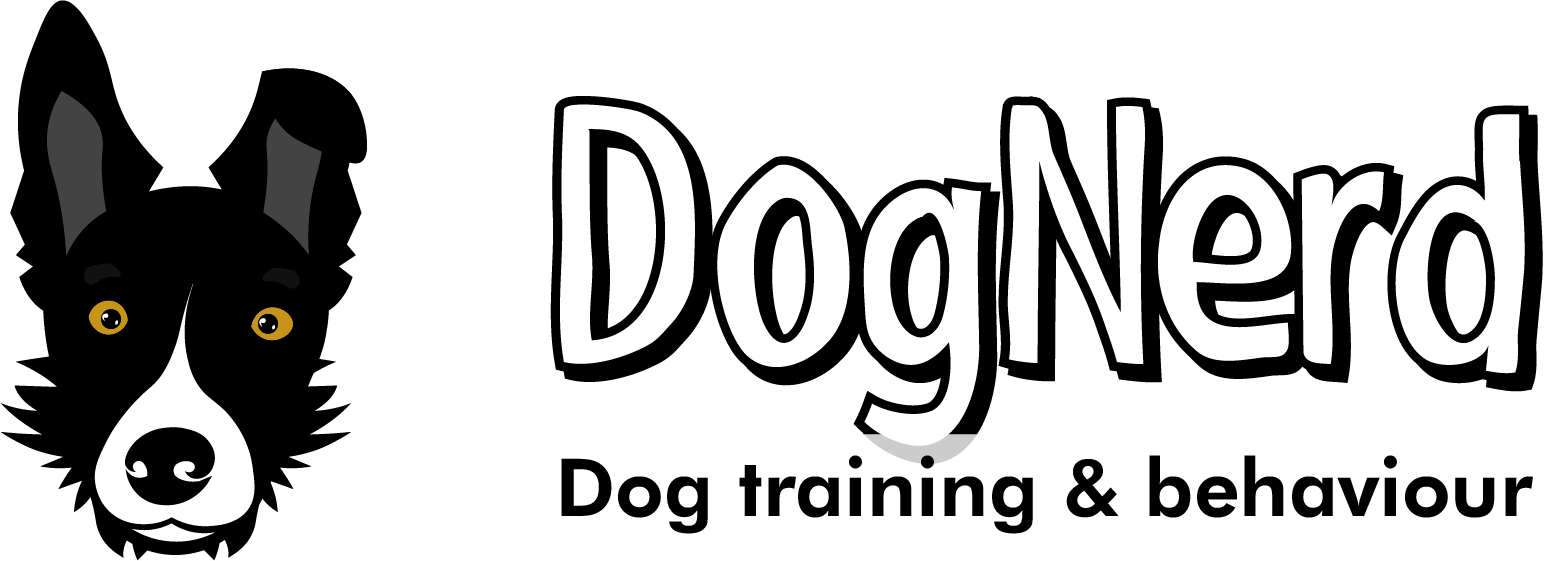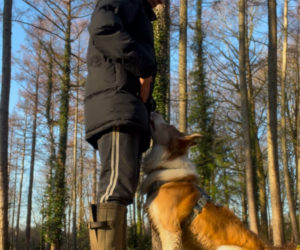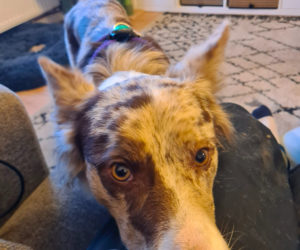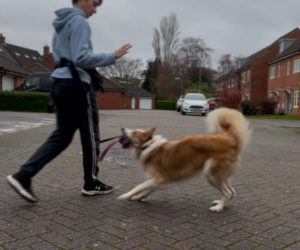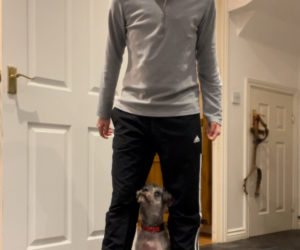Why it’s not “ok”, even if “he’s friendly”
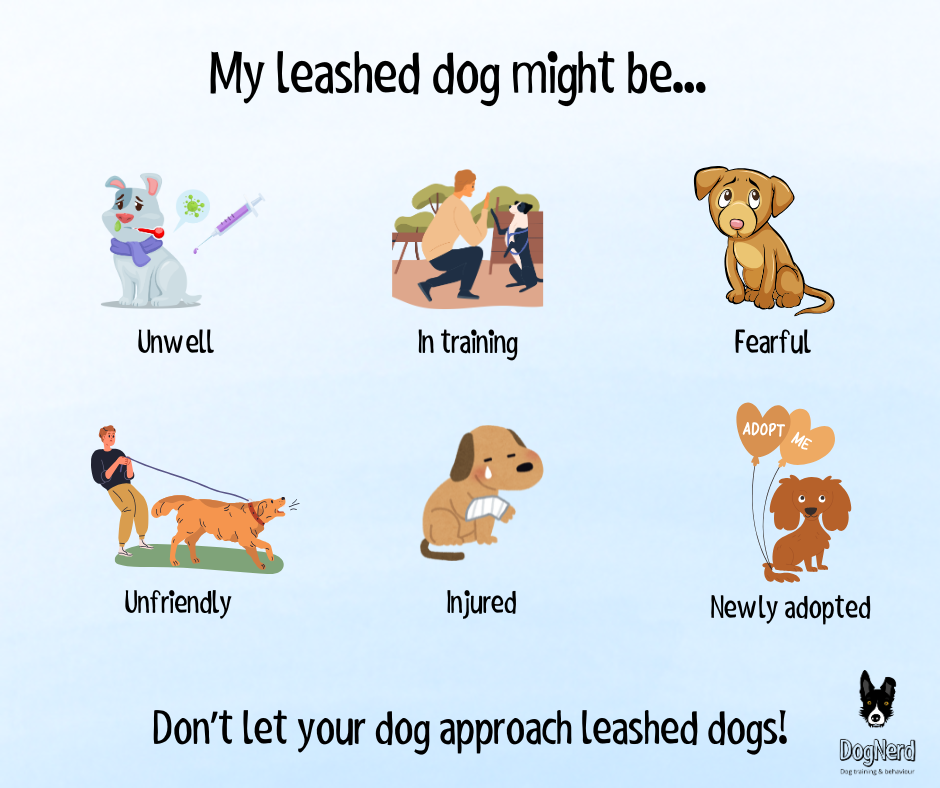
As dog owners, we often want our dogs to socialise and make new friends during walks. However, it’s crucial to remember that not all dogs are in a position to interact, especially those on a leash. Here’s why we should respect the space of leashed dogs and promote a safer environment for everyone.
Why Are Some Dogs Leashed?
When you see a dog on a leash, it’s important to understand that there may be valid reasons for it. Here are a few possibilities:
- Injury Recovery: Some dogs might be healing from injuries, making them vulnerable to interactions that could cause stress or harm.
- Health Issues: A leashed dog could be unwell or undergoing treatment, and sudden interactions might be overwhelming.
- Training: Many owners are actively training their dogs to manage their behaviour around others. Leashes can help in teaching important skills.
- Fear, reactivity, or aggression: Leashed dogs may be reactive or aggressive, or may be learning to feel safe around other dogs.
The Impact of Leashes on Dog Behavior
Even if a leashed dog is “friendly”, a leash can impede natural social behaviour and communication. When dogs are on a leash, they might not be able to express themselves fully, leading to misunderstandings. This is why rushing towards a leashed dog can create anxiety, not just for the leashed dog but also for the approaching dog and their owner.
Creating Inclusive Outdoor Spaces
While the UK may not have stringent leash laws, we should all strive to make our public spaces welcoming for every dog. Not all dogs want to interact with others, and they have every right to enjoy their walks without the stress of unexpected greetings. Respecting a leashed dog’s space fosters a more positive experience for all.
Teaching Your Dog Good Manners
If your dog is eager to greet every dog they see, it’s essential to channel that enthusiasm into learning valuable skills:
- Recall Training: Teach your dog to come to you when called, so you can call them away if they’re approaching a leashed dog.
- Check-In Habits: Encourage your dog to check in with you before approaching another dog.
- Controlled Interactions: Help your dog learn to manage their excitement around other dogs, whether they’re on a leash or not.
Final Thoughts
As responsible dog owners, we can create a more harmonious environment by respecting the needs of all dogs, especially those on leashes. By understanding their circumstances and teaching our dogs good manners, we contribute to a safer and more enjoyable outdoor experience for everyone.
Let’s work together to ensure that all dogs can enjoy our parks and public spaces without the stress of unexpected interactions. Share this message to spread awareness about dog etiquette!
See how we can help
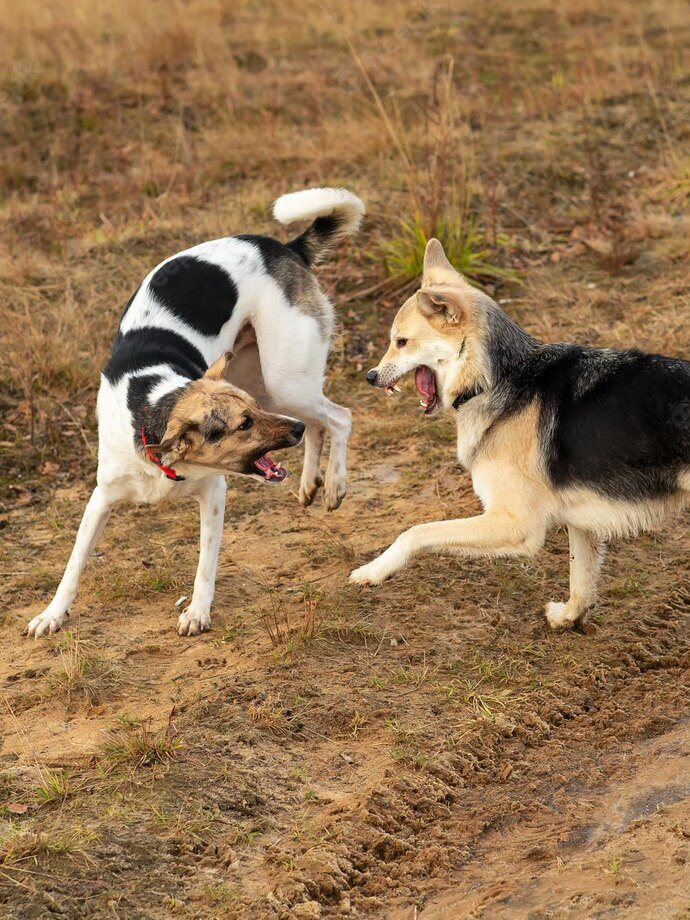
Behaviour rehabilitation
Many behaviour problems are linked to how your dog is feeling. Fear, anxiety and pain all influence how well your dog is able to cope with his environment and routines.
Dog training
Dog training is offered for all dogs: puppies, adolescents, seniors and newly adopted rescue dogs.

Book A Free Consultation Call
Unsure on where to start? I don't blame you, finding the right dog trainer can be a challenge in itself. Book a FREE 30 minute consultation call to find out more about how I work and how I can help you with your dog!
Given the dedication required to provide each dog and their owner with the personalised attention and training they need, I am only able to work with a limited number of clients at any given time. I sincerely believe in offering my services only when I am confident in my ability to deliver the outcomes you're seeking for your dog.
Related posts
Tips & Tricks is dedicated to providing every mama and papa with exclusive advice and information on how to take care and deal with their furry friends.
